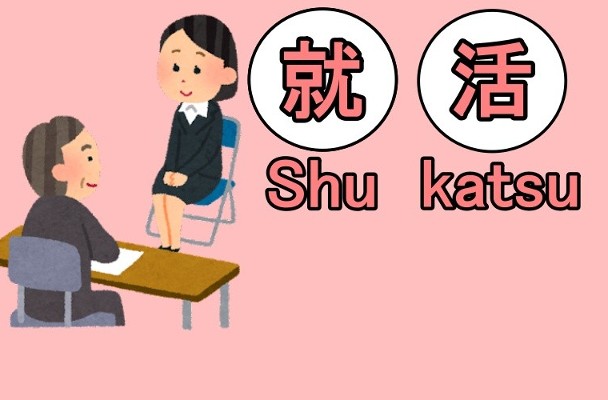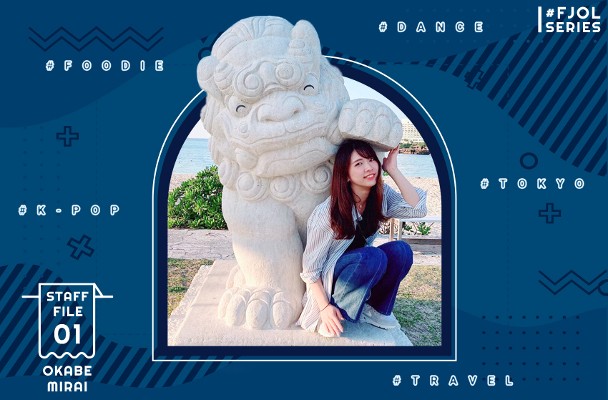
The idea that "Japanese companies demand long working hours" or that "Japanese people work too much" is widely known overseas, but did you know that in recent years, Japan has been pushing forward with work style reforms? These "work style reforms" in Japan are more than just a slogan — they are starting to make real changes to systems and how people work. Some of you may have heard about companies introducing flexible work styles such as a 3-day weekend, or how schools are reviewing teachers' responsibilities related to graduation essays and after-school clubs.
Additionally, in Tokyo, a system called the "Tokyo Work-Life Balance Certification" evaluates and certifies companies for their efforts to promote work-life balance, showing that both the public and private sectors are advancing reforms in work styles.
This article takes a look at the current state of Japan's ever-evolving work style reforms, while also introducing actual examples and interviews from employee-friendly companies.
What Are Work Style Reforms? Has Japan’s Work Environment Really Changed?
"Work style reforms" refer to efforts by the government and companies to improve the quality and productivity of the work environment by correcting long working hours, promoting flexible working styles, and encouraging the use of diverse human resources such as women and the elderly. Since April 1, 2019, a series of "work style reform-related laws" have been gradually implemented, introducing various measures. These include capping overtime hours, requiring employees to take annual paid leave, ensuring fair treatment regardless of employment type (such as between full-time and part-time workers), promoting telework, enhancing childcare and nursing leave systems, and lifting bans on side jobs.
One of the main reasons these reforms were introduced is the decline in Japan’s working-age population. As the country continues to age and the birthrate drops, the number of available workers is steadily decreasing. If left unaddressed, this would lead to a decline in national productivity and, ultimately, national strength. To prevent this, the government began taking serious steps toward reform.
With fewer workers available, creating a more comfortable work environment is essential not only for employees but also for companies that need to secure and retain talent. As a result, many companies are going beyond legal requirements and actively engaging in work style reforms. In the next section, we will take a closer look at two such initiatives: the "3-day workweek" and the "abolition of school graduation essays."
Example of Work Style Reform #1: The 3-Day Workweek (Companies and Local Governments)
What is a 3-Day Workweek?

A 3-day workweek is a system that allows employees to take three days off per week. Most Japanese companies follow the standard 5-day workweek as set by labor laws.
In contrast, the 3-day workweek is not legally required and is entirely optional for companies to adopt. In recent years, more companies—particularly large corporations—have started introducing the 3-day workweek on a trial basis.
The basic concept behind the 3-day workweek is "optional participation." It is generally offered only to employees who choose to take part. As mentioned earlier, since it is not legally mandated and still being tested in many places, it’s likely that not all employees are eligible.
There are three main ways companies implement the 3-day workweek: the "full-pay model," the "reduced-pay model," and the "same-hours model."
The "full-pay model" gives employees an extra day off while reducing total work hours, yet keeps their salary the same. Since work hours are shortened, employees are expected to maintain or improve productivity. On the other hand, the "reduced-pay model" reduces both work hours and salary in exchange for an additional day off. While the added free time is appealing, the decrease in income means this option may not suit everyone. The "same-hours model" increases the number of days off while keeping the total number of work hours unchanged. This typically means extending daily work hours over four days to make up for the additional day off.
Examples of Companies and Local Governments That Have Introduced a 3-Day Workweek
Companies offering the optional 3-day workweek include Fast Retailing (known for UNIQLO), Yahoo, Toshiba, and Mizuho Financial Group. Among local governments, Ibaraki, Chiba, Hyogo, Nara, and Osaka prefectures are leading examples. Starting in April 2025, Tokyo also implemented an optional 3-day workweek.
Pros and Cons of the 3-Day Workweek
Here are the main advantages of the 3-day workweek:
- Improves work-life balance
- Leads to increased productivity
- Helps secure talent by reducing turnover
In addition to helping workers balance childcare or caregiving responsibilities, it also allows more personal time for hobbies and relaxation. The extra day off can be used to gain new skills or qualifications, or to earn more through side jobs. A fulfilling work-life balance can also help maintain motivation on the job.
Microsoft Japan reported in 2019 that after trialing a 3-day workweek, labor productivity rose by 40%. With employees more motivated and focused on completing tasks within a limited timeframe, this likely led to greater efficiency. Flexible working styles can also improve employee satisfaction and reduce turnover, which can help companies retain talented individuals.
However, there are downsides to the 3-day workweek:
- Possible salary reductions
- Longer working hours per day may increase fatigue
- Challenges coordinating with clients and adjusting workloads
In the reduced-pay model, working four days a week could mean earning only 80% of your previous income. In the same-hours model, longer daily hours mean greater strain on workdays. If a company does business with clients who follow a traditional 2-day weekend, syncing schedules and managing workflow could become more difficult, potentially resulting in missed business opportunities.
Example of Work Style Reform #2: Elimination of Graduation Essays and Club Activities (Teachers)
Why Some Schools Are Doing Away with Graduation Essays and Club Activities

In Japan, elementary and junior high schools traditionally compile a "graduation essay book" as a way to commemorate graduation. Each student writes an essay on topics such as their dreams for the future or memories of school life, which are then compiled into a booklet. Like a yearbook, a copy is printed for every graduate. It’s also common for students to exchange handwritten messages on the blank pages of these booklets during the graduation ceremony, making them a treasured keepsake of school life.
However, more schools are beginning to phase out these graduation essay books. Creating them has traditionally been led by teachers and done during class hours, but the workload—especially editing and reviewing student essays—has become a significant burden. Additionally, it’s becoming harder to allocate time during a packed academic schedule.
Some schools have replaced school-led essay booklets with parent-led alternatives. In one public school in Tokyo, graduation essay books were abolished as part of teacher workstyle reform. In response, the PTA's graduation committee took the initiative to create a student profile booklet written by the children themselves. While there are concerns that this may place a disproportionate burden on certain parents, it offers a meaningful way to preserve memories while easing the workload on teachers and rethinking long-held practices.
Club activities are also being eliminated in some schools due to the heavy responsibilities placed on teachers, who are expected to coach and supervise these extracurriculars. Despite growing calls to address the long working hours of teachers, work style reforms in education are proving more difficult to implement than in the private sector.
Example of Work Style Reform #3: Certification and Awards for “White Companies” (Tokyo Government and Organizations)
Local governments and organizations have started establishing criteria to recognize and award so-called “white companies”—businesses that offer excellent work environments.
Interview with a Tokyo Work-Life Balance Award Winner: Parking Market Co., Ltd.
Among these efforts, we interviewed Parking Market Co., Ltd., which operates nationwide businesses including parking lots (PMC Monthly Parking) and bicycle parking (Nirīn). The company won the grand prize in the Tokyo Work-Life Balance Awards for FY2024.
Parking Market has widely adopted flexible working hours calculated to the minute and remote work policies, with nearly all employees using them. Thanks to these systems, the company has achieved zero overtime and encourages effective use of paid leave.
"To make flexible workstyles a reality, efficient operations are essential," said Executive Director Okamoto. "We don’t see our current system as the final goal. By further improving efficiency, we aim to give employees more time to invest in their own growth. That personal growth then feeds back into even greater productivity, so we’re committed to continuously improving within this positive cycle."
Being a “white company” isn’t just about offering shorter working hours—it means actively striving to improve work efficiency and productivity across the organization.
Other Certifications and Awards for White Companies
White Company Certification: This is a system established by the Japan Organization for the Promotion of Next Generation Companies, which comprehensively evaluates a company's efforts to become more "white" (ethical and employee-friendly). It assesses whether a company is supported by families and society, and whether it’s one that should be passed on to future generations. By April 2025, 557 companies had been certified. Among these, particularly noteworthy companies are selected for the "White Company Award."
- White Company Grand Prize: This award is organized and operated by the White Company Grand Prize Planning Committee. It defines white companies as those that value employee happiness, job satisfaction, and contributions to society. Selections are based on employee surveys.
How to Distinguish Between Black and White Companies
We’ve introduced some specific initiatives for work style reform taken by companies and local governments, but how exactly can we tell the difference between a black company and a white company? Let’s take a look at their respective characteristics.
Features of Black Companies

Black companies often have the following traits:
- Extreme long working hours and unrealistic quotas imposed on employees
- Unpaid overtime is common
- Widespread harassment or bullying, with low overall awareness of compliance
- Job ads with exaggerated claims like "high income" or "no experience necessary"
- Work shifts exceed what was agreed upon at the time of hiring
- When someone tries to quit, the company refuses by citing quotas or penalties
It may be hard to spot such traits before joining, but companies that are constantly hiring may have a high turnover rate, so that’s something to watch out for.
Features of White Companies

White companies tend to have the following traits:
- Short overtime hours and high rates of paid leave usage
- Comprehensive benefits and fair, stable salaries
- A well-established work environment where employees can stay long term
- No discrepancy between hiring conditions and the actual working environment
- A well-equipped office with systems in place to support employees both mentally and physically
White companies are typically further along in implementing work style reforms and tend to value work-life balance. Since they don’t need to exaggerate job postings just to hire people, the working conditions offered match the ones described at the time of recruitment. You can expect to work under the conditions that were originally promised.
How to Spot a Good Job Listing
It’s always reassuring to confirm whether a company is a white company before joining. Here’s how to evaluate that through job listings.
First, check whether the job description is clear. Are salary, working hours, and days off specified in detail? Also, pay attention to how they respond if you ask about working styles in an interview. If they avoid giving a clear answer or dodge the question, it may be worth reconsidering.
Checking company reviews on job listing sites can also help, though it’s best not to take every comment at face value.
Advice for Foreign Job Seekers in Japan
Many foreigners work at FUN! JAPAN as well. Here’s some advice for non-Japanese people who want to work in Japan.
If you're looking for a job in Japan, we recommend using Hello Work. Hello Work offers career counseling and job placement services for foreigners who have a valid work visa and want to work in Japan. Some locations have a Foreign Job Support Desk with interpreters, which is useful for those who don't speak Japanese.
It’s also good to familiarize yourself with the basics of Japanese labor laws before starting work in Japan:
・No discrimination based on nationality
Employers may not treat you unfairly simply because labor conditions in your home country are different.
・Overtime, holiday work, and night work must be compensated at higher rates
Overtime work must be paid at a rate at least 25% higher than regular wages. Work on legally mandated holidays must be paid at a rate of at least 35% more.
・Paid annual leave
If you’ve been employed for six months and have attended work for at least 80% of your scheduled days, you are entitled to paid annual leave.
Check a company’s track record for hiring foreign workers on its official website or recruitment page. Many sites now support multiple languages, so try switching the language settings.
Is Work Style Reform in Japan Still Progressing?
Japan’s work style reform continues to evolve in various forms, such as the introduction of flexible systems like the 3-day weekend, reduced workloads in the education sector, and active recognition of white companies.
However, some black companies that go against the spirit of reform still remain. That’s why it’s important for job seekers and workers themselves to develop an eye for recognizing truly healthy work environments. Take note of the reforms and initiatives introduced by companies and municipalities that are genuinely committed to work style reform, and use that information to make informed decisions when choosing where to work.
References:
Ministry of Health, Labour and Welfare "Work Style Reform ~Toward the Realization of a Society in which All Citizens are Actively Engaged~" https://www.mhlw.go.jp/content/000335765.pdf
Workflow Research Institute, "What is a three-day workweek? , Eightred Co., Ltd. https://www.atled.jp/wfl/article/38668/
BBC NEWS JAPAN "Japan MICROSOFT ANNOUNCES TEST RESULTS OF 'PRODUCTIVITY IMPROVEMENT' WITH 3 DAYS OFF PER WEEK " https://www.bbc.com/japanese/50297893.amp
White Foundation Official Homepage https://jws-japan.or.jp/recognition/
Kyoto New Graduate Support Hello Work "About Black Companies" https://jsite.mhlw.go.jp/nisizinkarasumaoike-kyoto-plaza/home/shinsotsu/kyu-shoku/kosokoso_00002.html
Money Forward Cloud "What are the characteristics of white companies https://biz.moneyforward.com/payroll/basic/66722/?
Tokyo Employment Service Center for Foreigners "Foreigners who can work in Japan and foreigners who cannot work" https://jsite.mhlw.go.jp/tokyo-foreigner/tenshokusha/nihon_hataraku_gaikokujin/spec_1a.html





Comments